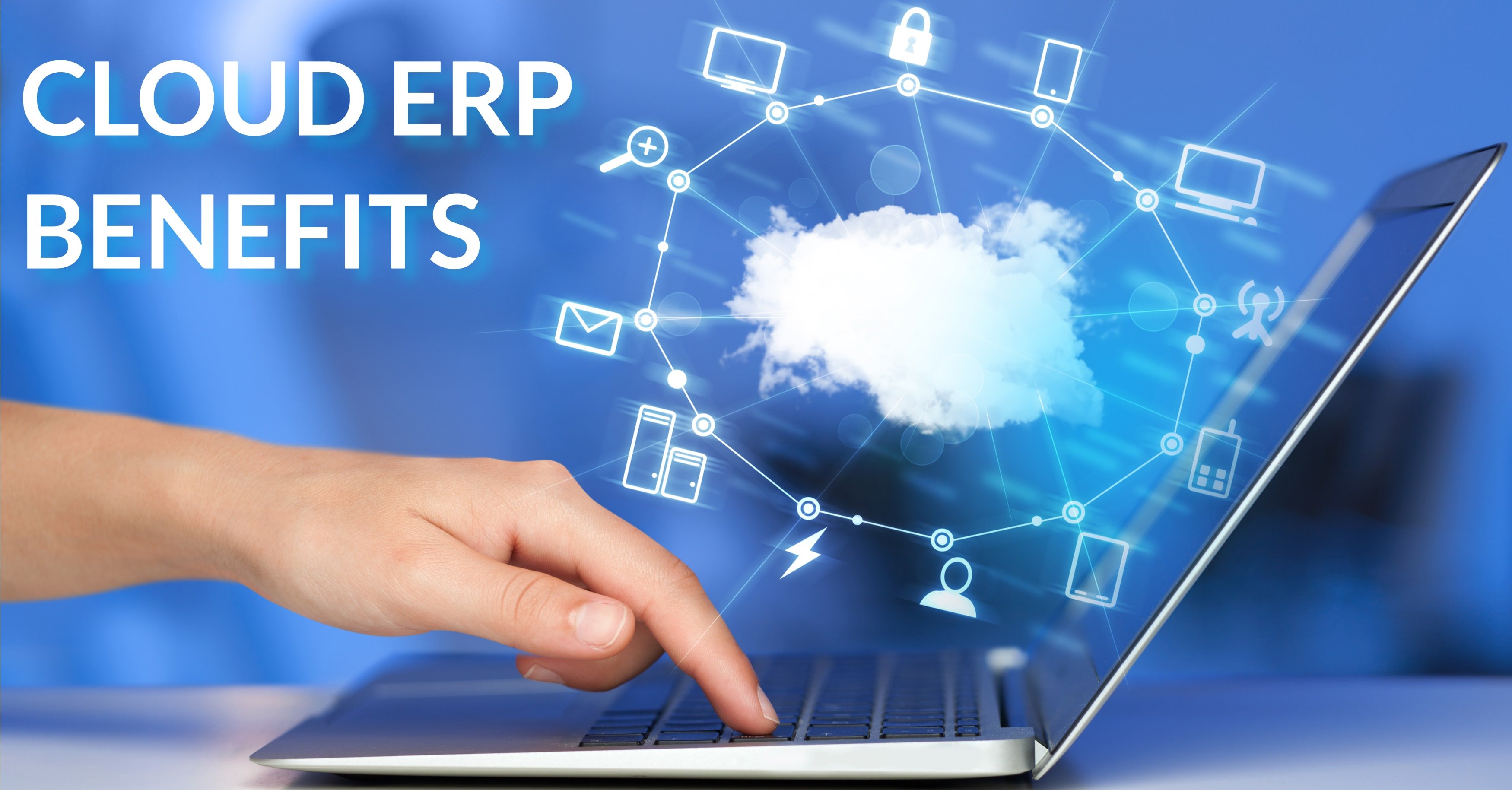Cloud ERP Advantages
Cloud computing’s ascendance to the forefront of enterprise technology is the most significant development in the ERP market in recent years. 76% of companies are already using the cloud or planning to move to the cloud, according to a 2018 report. This number will continue to rise. Though on-premises software continues to be prevalent, ERP vendors and enterprises are increasingly turning their sights to the cloud.
But what is the reason behind the cloud’s popularity? Actually, there are several reasons that companies host their software in the cloud. Today, we’re covering just five of the exciting benefits of choosing a cloud deployment for your ERP solution.
1. Simplified Implementation
In a study conducted by Technology Evaluation Centers, almost 80% of ERP experts agreed that the cloud simplified software implementation. On-premises ERP deployments require a great deal of complexity. Installing new hardware and servers tacks considerable time and labor onto your ERP project. With cloud software, your solution is hosted off site, so you don’t have to worry about hardware. Bear in mind that many implementation tasks, such as change management and user training, are required regardless of your deployment method, but a cloud solution eradicates some of the largest technical hurdles.
This simplicity extends beyond the initial implementation. Cloud software’s flexibility makes upgrades and maintenance easier to execute. IT departments don’t have to delegate so much time to upkeep, since your cloud provider will be taking on most of this burden. Your ERP solution can be quickly deployed and updated without the hassle of on-site hardware.
2. Greater Connectivity
Manufacturing and distribution are moving faster than ever, and you don’t have time to wait for critical insights. Cloud ERP fuels digital innovation to deliver the information you need, whenever and wherever you need it. Data is available on the go from any of your devices, allowing users to view information while working remote or in the field. Users across global locations can all access the same data to gain a complete picture of your enterprise.
Cloud ERP also makes the latest software technology possible. Microsoft Azure, for example, is a public cloud platform that has developed sophisticated artificial intelligence (AI) and Internet of Things (IoT) tools. These cutting-edge features extract valuable insights from every corner of your organization. From consumer trends to machine performance, the cloud brings all the elements of your enterprise together to improve decision making and efficiency.
3. Faster Time to Value
Without the time and expense of on-premises hardware and servers, you can enjoy faster time to value. Cloud ERP has built-in best practices. In other words, the infrastructure for real-time collaboration, a 360-degree view of your operations and innovative technology are ready to go without extensive add-ons and customizations. You can go live faster and at a lower price tag. That means you can start utilizing advanced features and generating a return on your investment in no time.
4. Better Scalability
As your business grows, your ERP must keep up. On-premises ERP can’t always handle heavy workloads, swelling customer lists or new locations. Cloud ERP, on the other hand, is endlessly scalable. Accommodating larger accounts doesn’t require tedious customization or changes to your hardware. No matter how much your enterprise expands, your solution will generate real-time data accessible across platforms. With cloud ERP’s accessibility and flexibility, there’s no ceiling on your organization’s growth.
5. Reliable Security
The data security fears from the early days of cloud computing have pretty much dissipated. On-site software requires heavy investments in security and constant monitoring from your IT team. Your IT personnel has enough responsibilities without the pressure of protecting sensitive information. With cloud ERP, your data security is in the hands of industry experts. Cloud providers have the sophisticated technology and methodology to protect businesses from risks and downtime. Microsoft Azure offers particularly stringent security, including 24/7 global support and built-in disaster recovery.
However, we wouldn’t suggest fully entrusting cloud providers with your data. Cloud ERP still has some gaps in security that leave your solution vulnerable to downtime and cyber attacks. A backup and disaster recovery solution adds extra protection to ensure your software is running again in minutes after any issue.
Wrap Up
Cloud computing is driving digital transformation for businesses of all sizes. When you host ERP in the cloud, you open the door to greater connectivity, innovation and speed.
Even though cloud computing simplifies ERP projects, you should still seek the guidance of a certified expert. Datix, an Epicor Gold Partner, has executed ERP projects from start to finish for over 20 years. We offer a large array of solutions and services under one roof, so we can help you at every stage of your ERP journey. One of those solutions is Microsoft Azure. Microsoft Azure gives you complete control over your ERP without the hassle and costs of on-premises hardware. We’ll help you deploy and manage your Epicor software on the strongest public cloud platform available.
Head to the cloud to elevate your enterprise performance. Learn more by reaching out to a certified consultant at Datix today!
{{cta(‘770c1544-d87d-4acb-9fc4-7a25e1385094′,’justifycenter’)}}


